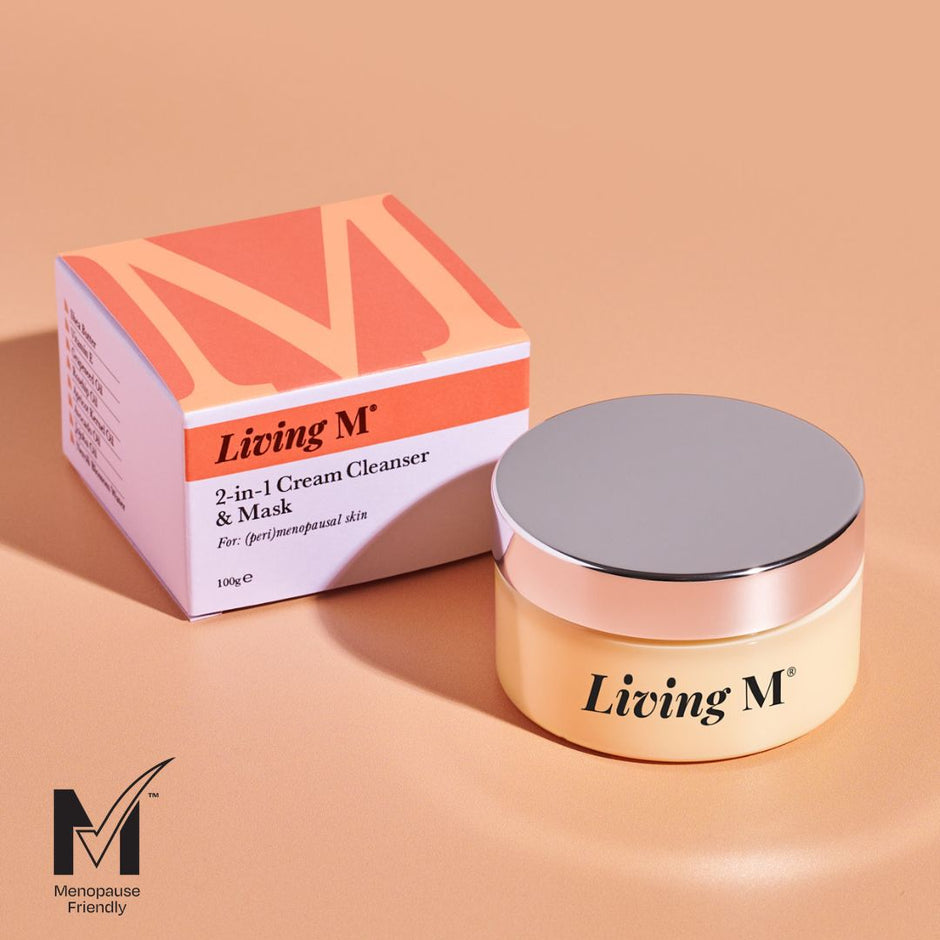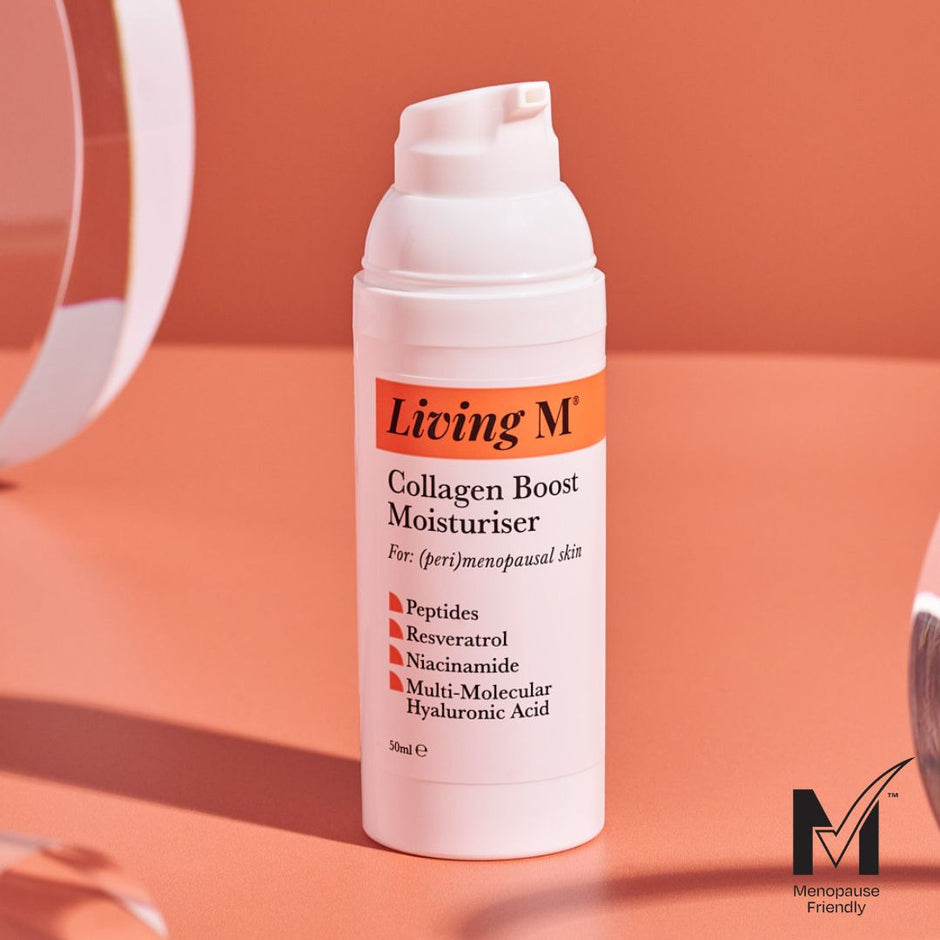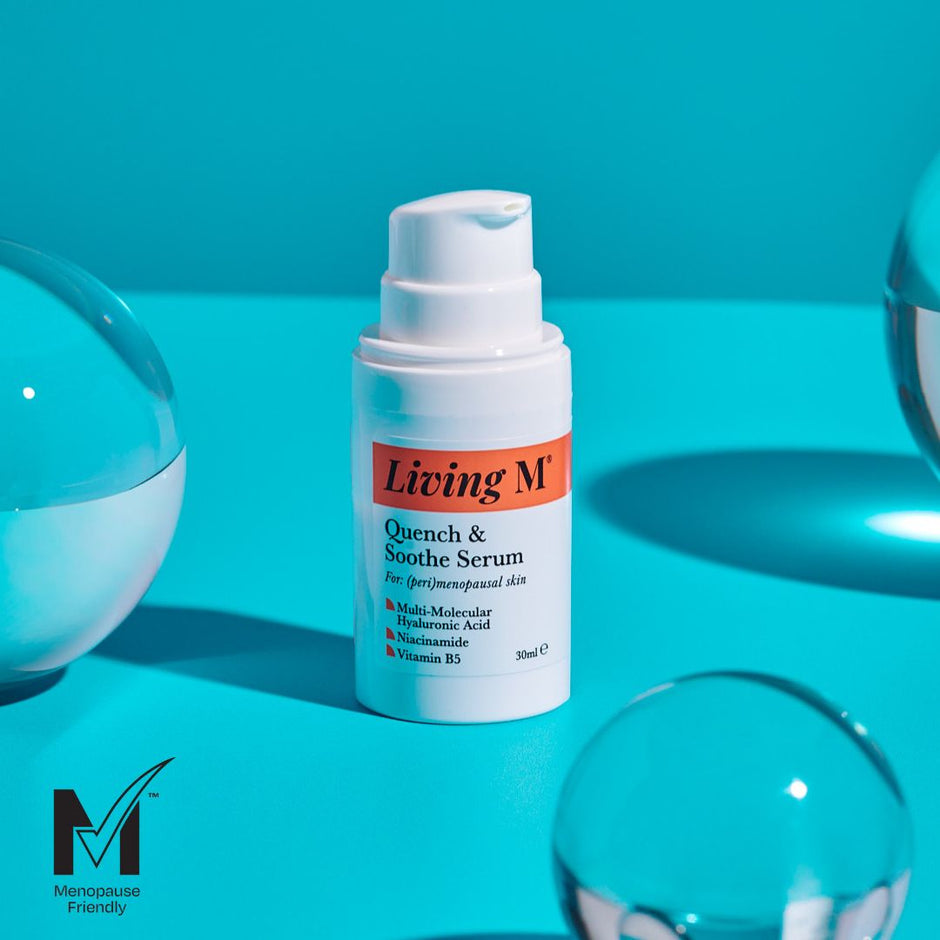Hyaluronic acid is the ultimate skin hydrator and even more so during menopause.
A real skincare superstar – it’s true that nothing beats it when it comes to restoring that plump, fresh, dewy look that can seem like a distant memory as we go through menopause. Fluctuating hormones can have a huge impact on the condition of our skin. As oestrogen declines, collagen production slows rapidly leaving skin drier and thinner with a weakened skin barrier. Skin starts to lose its ability to hold onto water becoming dull and dehydrated.
To restore skin’s bounce and glow we need to replenish skin’s hydration levels with hyaluronic acid. Here’s why we all need to be reaching for the ultimate hydration hero to combat the visible signs of collagen loss in menopause.
What is collagen?
Collagen is the most abundant protein in the body found in bones, muscles, skin, and tendons. Think of it like the glue or the scaffolding that holds skin cells together and makes them strong. It’s the structural protein responsible for skin’s elasticity and firmness, so when collagen levels start to decline rapidly in menopause, the impact on our skin is significant. Skin becomes thinner and drier and loses its radiance and ability to hold onto water. The skin barrier also becomes weaker which can make it more prone to irritation, sensitivity and inflammation. You will probably find that products that you have been using for years might not be working anymore for your changing skin needs.
What are the effects of collagen loss on skin in menopause?
As hormone levels start to fluctuate and decline, collagen levels will start to decrease - 30% will be lost during the first 5 years of menopause. These hormonal shifts can actually have a much greater impact on skin than chronological ageing. As collagen levels decline skin will become drier, thinner, more sensitive and less radiant. Skin loses its ability to hold onto water making it more prone to dehydration and fine lines and wrinkles (we prefer to call them laughter lines).
What is Hyaluronic Acid?
Hyaluronic acid is produced naturally by the body which is what makes it such a powerful yet gentle skincare ingredient. Despite the acid in the name, it’s not an exfoliant. It’s a sugar molecule found in the body that can hold up to 1000 x it’s weight in water to keep skin cells hydrated and plump. It functions like a sponge in the body and binds water to the skin which is why it is known as “the moisture magnet”. Just like collagen and elastin, as we go through menopause, hyaluronic acid levels in the body decline. As a result, skin becomes parched and dehydrated with a weakened skin barrier. Skin needs extra hydration, and a well-formulated product will the right types of hyaluronic acid is can deliver not only an instant hydration hit but lasting, deeper hydration over time. This hydration super-hero also helps with skin barrier repair, cellular renewal and can protect against the inflammation which can occur due to increased skin sensitivity in menopause.
Most products on the market use hyaluronic acid in the larger molecule form. While this is great for surface hydration, it isn’t going to do anything to boost skin hydration over time at a deeper level. For long-lasting hydration and optimum results, you need to look for products containing different sized molecules.
Living M skincare products are all formulated with three different-sized molecules of hyaluronic acid for superior hydration.
We use multi-molecular hyaluronic acid as a base in all of our skincare blended with other skincare super ingredients to treat the hormonal skin changes caused by menopause. Low and medium weight molecules provide maximum below the surface hydration while high weight compounds deliver immediate intensive hydration to the surface levels of the skin for an instant smoothing and firming effect.
Quench & Soothe Serum, Collagen Boost Moisturiser and Super A Retinol Sleep Cream are all formulated with
- Hydrolysed hyaluronic acid is a low-molecular weight version of hyaluronic acid that is able to penetrate deeper into the skin’s layers for maximum below-the-surface hydration.
- Sodium hyaluronate cross polymer a special"cross-linked" from of the super moisturizer. Normal pieces of hyaluronic acidare chemically bound together to create a mesh structure that coats the skin. The special mesh has an amazing water-binding capacity, five times more than regular hyaluronic acid. This water filled hyaluronic gel forms a smooth film on the skin that continuously hydrates giving long-term moisturizing benefits.
- Sodium hyaluronate is the sodium form of hyaluronic acid. It is a smaller molecule than regular hyaluronic acid and can penetrate below the top of the epidermis for superior hydration.
Hyaluronic acid is suitable for even the most sensitive skin types and plays well with other skincare active ingredients making it a must-have for targeting skin changes caused by menopause. You can layer it in products because it won’t cause irritation.





